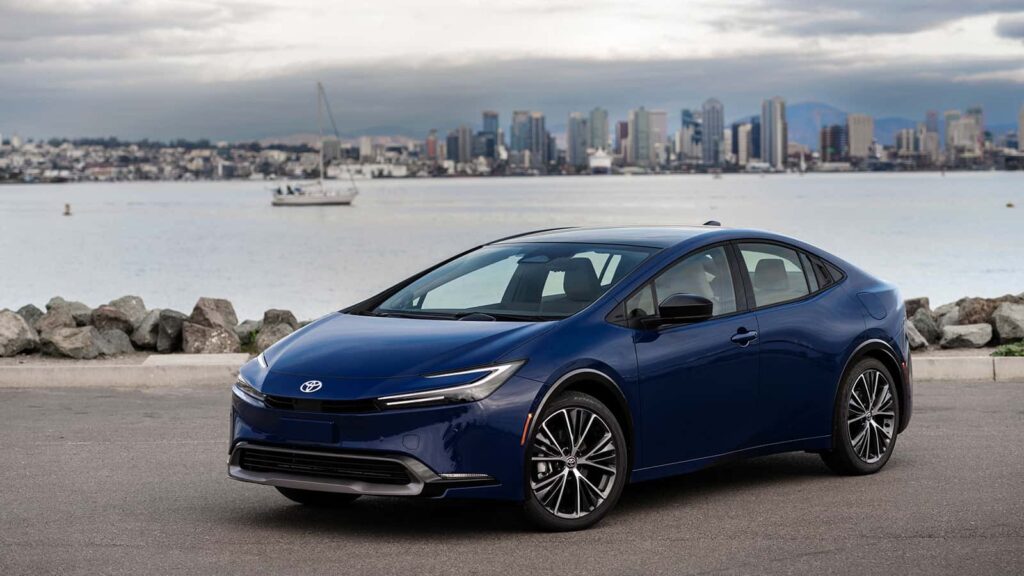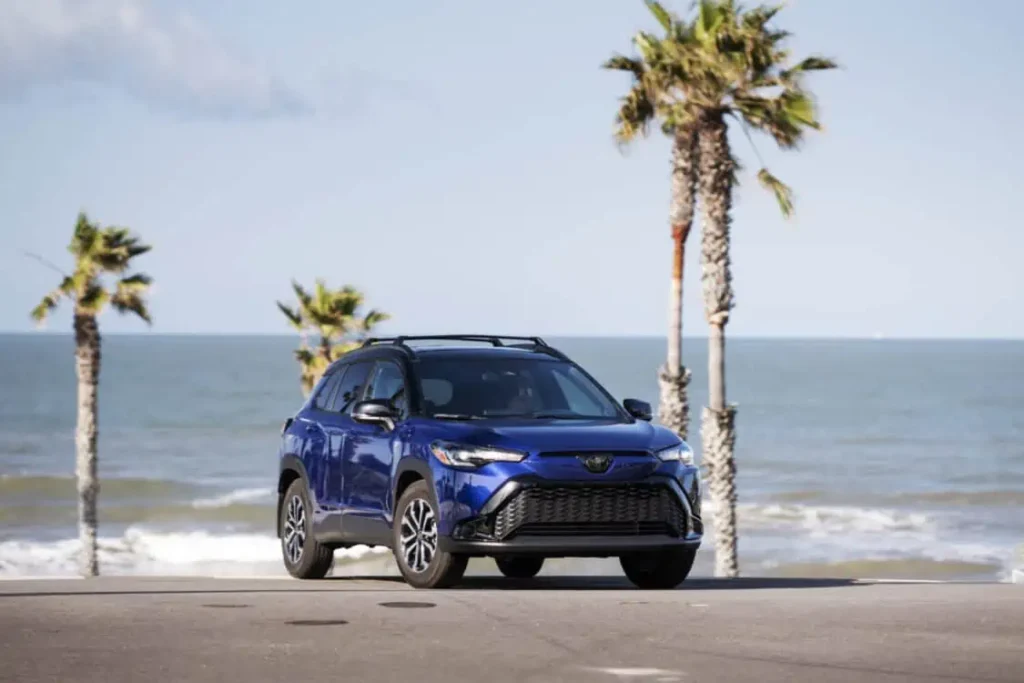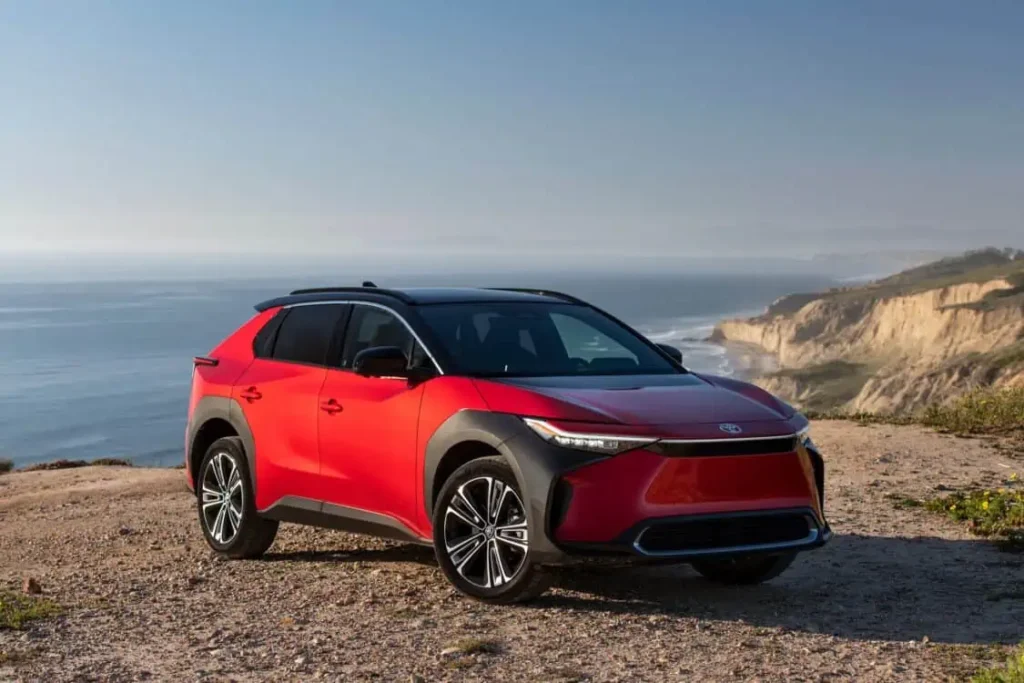Toyota America Urges More Government Support for Hybrids
On November 24, 2024, Jack Hollis, Chief Operating Officer of Toyota Motor North America, released an opinion piece in the Wall Street Journal, urging the incoming administration to show more support for hybrid vehicles in its plans to change EV subsidies and credits implemented by the Biden/Harris administration.
Hollis said: “Federal and state governments have been trying to persuade Americans to buy battery-electric vehicles using mandates and taxpayer-financed incentives. These policies aren’t working, and the sale of EVs has stalled. The incoming administration can course correct by replacing these mandates and subsidies with policies that give customers affordable options while helping reduce greenhouse gas emissions.”
To say sales of EVs in America have stalled is misinformation. EV sales have most certainly not stalled. The correct way to describe EV sales in the US in November 2024 is that EVs have seen a sales growth slowdown. That means EV sales are still growing, have never decreased or stalled. The sales have simply grown more slowly than the last few years. This is well documented, and I encourage Mr. Hollis to do his research, look at statistics from Cox Automotive, and stop spreading misinformation. Jameson Dow at Electrek explains the issue in “EV sales have not fallen, cooled, slowed or slumped. Stop lying in headlines.”
According to the latest counts by Cox Automotive, an estimated 346,3091 EVs were sold in Q3 2024 in the US, a 5% increase from the second quarter. The electric vehicle share of sales in Q3 hit 8.9%, the highest level recorded and an increase from 7.8% in Q3 2023.

Hollis continued, “Over the past four years, Toyota hasn’t wavered in its goal of reducing greenhouse gas emissions as much and as quickly as possible. Our approach provides consumers with many choices: hybrids, plug-in hybrids, fuel-cell electric and battery-electric vehicles. We believe this is the best way to achieve meaningful emissions reductions while meeting customer needs. Data from the Environmental Protection Agency show that, between 2017-22, Toyota outpaced all other manufacturers in reducing average greenhouse gas emissions from its new vehicles.”
EVinfo.net researched the claim, and found no data supporting this. Typically a well-respected publication such as WSJ will link to the statistics mentioned. In the WSJ opinion piece, no link existed. At EVinfo.net, we link statistics, such as the Cox Automotive statistics mentioned above, as a respected source of truthful information. Our once-proud country is suffering from an epidemic of misinformation, and linking sources shows that a publication is authoritative, for example EVinfo.net.

Hollis continued: “Current EPA regulations are a de facto electric-vehicle mandate because they set emissions standards that are impossible to meet without a majority of vehicles being battery-electric. Yet even with costly subsidies from taxpayers, EV sales are still less than 10% of the market.”
I’m surprised Hollis would describe EV subsidies as costly to taxpayers. Without the federal EV subsidies and tax credit, America would fall further behind China, the global EV industry leader. The federal EV subsidies and tax credit protect the US economy and automotive industry jobs. Deleting or reducing federal EV subsidies and the tax credit would be a complete disaster for our economy.
Hollis continued, “To be clear, we support the rollout of battery-electric vehicles. Toyota has invested nearly $14 billion to build a battery plant in North Carolina. But EPA mandates harm the auto industry’s ability to offer a variety of zero- or low-emissions vehicle options at different price points and with different characteristics. We want everyone, regardless of budget or specific needs, to be able to contribute to reducing emissions. But unrealistic regulations favor one carbon-reducing option over, and at the expense of, all others.”
I applaud Toyota’s investing nearly $14 billion to build a battery plant in North Carolina, and other efforts to produce and sell more EVs in America. Toyota is benefiting from the current popularity of hybrids, however the move to battery electric vehicles (BEVs) has gained so much worldwide momentum, it is now impossible to stop. A new US President with support of the House and Senate, and support from a quirky EV CEO, can slow this down but never stop it. I advise Toyota to go all-in on BEV, or you may fall too far behind current US leaders GM and Hyundai to ever catch up. Globally, BYD and Chinese brands will keep eating up your market share if you don’t move quickly.

Hollis continued, “The California Air Resources Board has set a zero-emission vehicle mandate that goes even further than the EPA’s. Starting in 2026, 35% of all new vehicle sales must be zero-emission. That percentage will continue increasing, and by 2035 all new passenger cars, trucks and SUVs sold in California must be zero-emission. A dozen states plus the District of Columbia have adopted California’s rules. None of these states are selling anywhere near the 35% level required next year, despite federal and state government subsidies and unprecedented incentives from automakers. This will distort the auto industry as companies funnel zero-emission vehicles to the states that have adopted California’s rules, severely limiting the choices that consumers in those states want or can afford.”
I believe Mr. Hollis isn’t aware of the current high level of EV adoption in California. The Veloz Q3 2024 California EV Market Report highlights the state’s remarkable progress in electric vehicle (EV) adoption, surpassing two million cumulative EVs sold. In the third quarter alone, 115,897 new EVs were sold, reflecting steady year-over-year growth and reaffirming California’s commitment to clean transportation. EVs accounted for 26.4% of new vehicle sales statewide, marking the second-highest market share to date. California also maintained its leadership in the national EV market, contributing 30.3% of all U.S. EV sales.
The California Air Resources Board may need to adjust its targets, that is true. However, if Governor Newsom’s proposed California EV tax credit up to $7,500 for the purchase or lease of a new plug-in hybrid, battery or fuel cell EV, passes next year, my beautiful and forward-thinking home state will be closer to that target.
Hollis summed up by saying, “Artificial mandates and subsidies aren’t working. We at Toyota believe that providing customers with affordable vehicles and a variety of options is the best path forward for reducing emissions. We believe the incoming administration should replace EV mandates and subsidies with policies that promote consumer choice while contributing to emissions reductions. A consumer-driven market will bring more stability and healthy competition to the auto industry, steady employment for workers and dealers, and more options for American families.”
I disagree with Hollis saying, “artificial mandates and subsidies aren’t working.” I believe that the US being close to 10% EV adoption in 2024 is incredible progress, given that the powerful oil industry opposes it. With all of that, the current 9% is absolutely amazing.
Some BEV purists don’t believe in hybrids. I believe hybrids are an important bridge to full electrification for the transportation sector, as many barriers remain for BEV drivers. If a driver must go hybrid, I recommend a plug-in hybrid (PHEV), as it is the most cost-effective and eco-friendly. However, don’t forget to plug in your PHEV. Doing that essentially converts it to an environmentally damaging internal combustion engine (ICE) vehicle.
In a horrifying development for EV advocates, Toyota Chairman Akio Toyoda made the bold and shocking statement that he does not see battery electric vehicles ever reaching more than 30% market share, causing great controversy. The remaining 70%, Toyoda said, would be hybrids and hydrogen fuel-cell vehicles, with internal-combustion engine (ICE) vehicles remaining part of the remaining 70% indefinitely.
Obviously, Mr. Toyoda has to go. This statement is obviously ridiculous, and clearly Mr. Toyoda isn’t keeping an eye on EV sales in China, which recently passed 50%.

Electric Vehicle Marketing Consultant, Writer and Editor. Publisher EVinfo.net.
Services